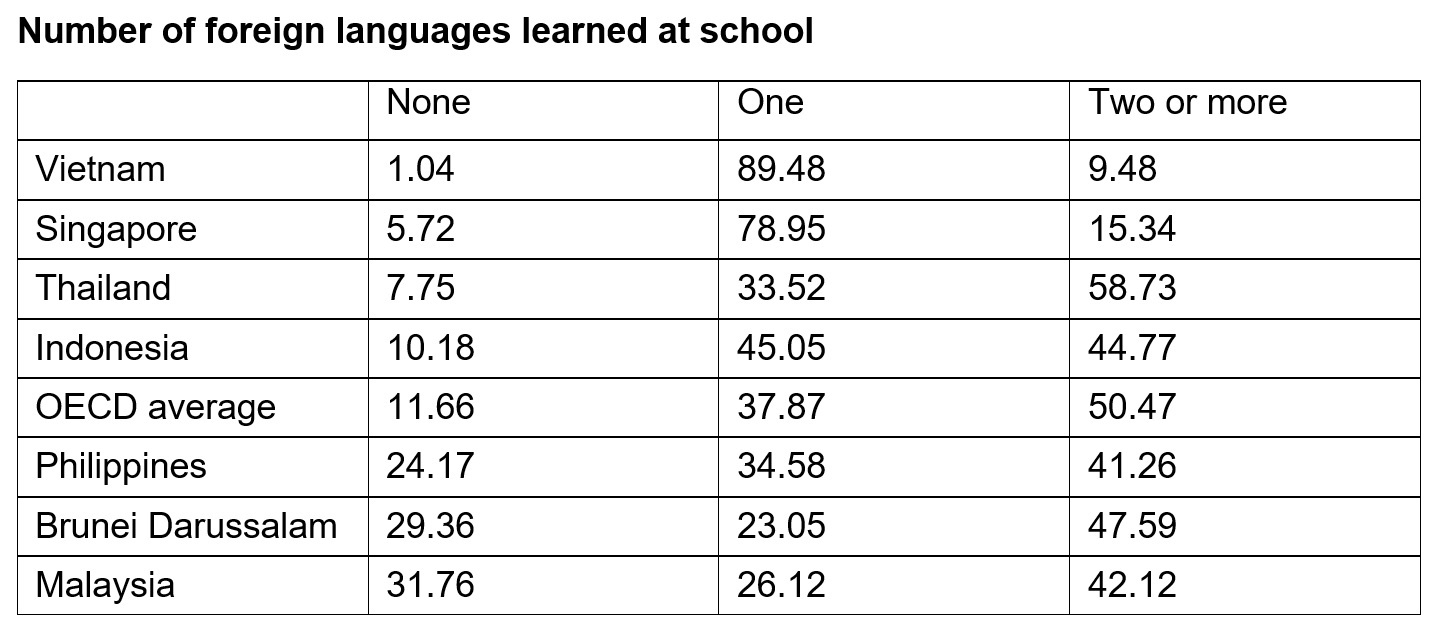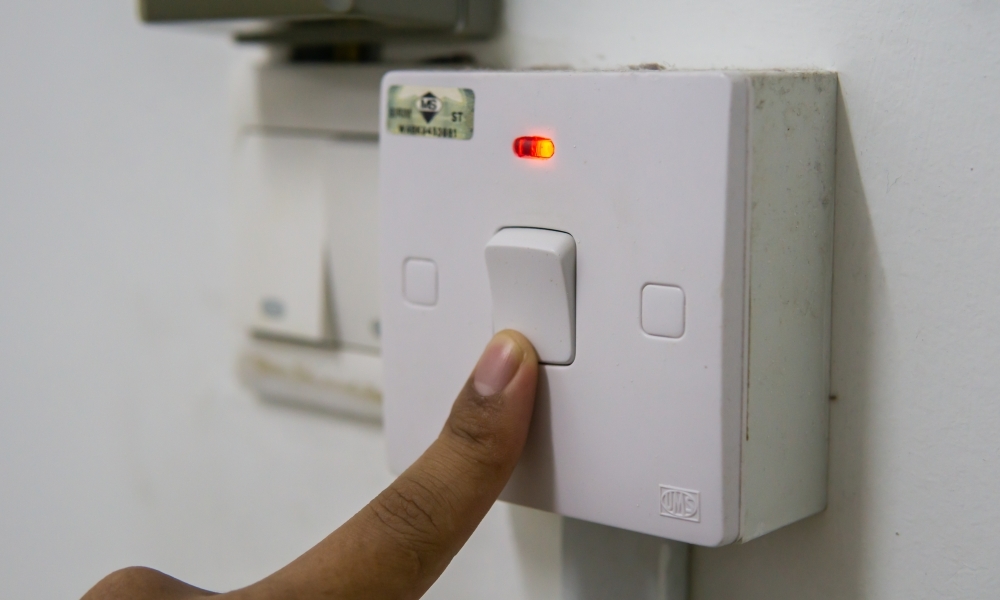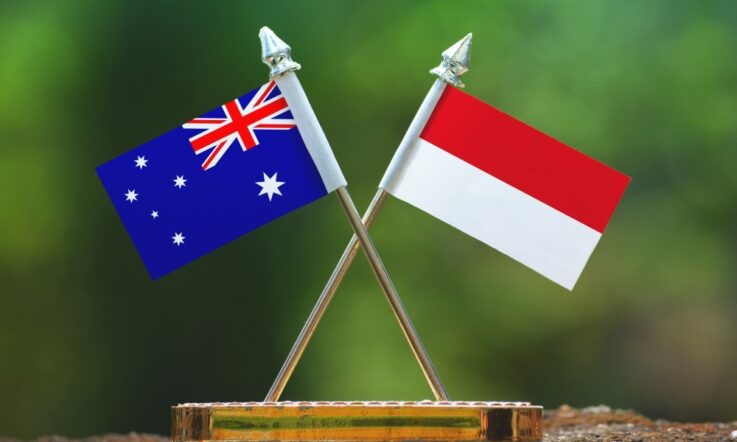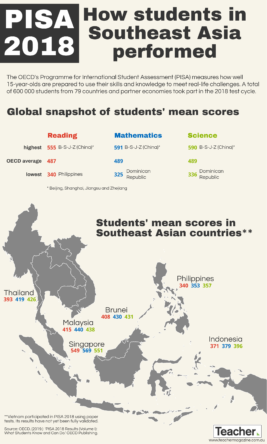What skills do students need in order to successfully navigate a diverse, complex and rapidly changing world? Seven countries from the Southeast Asia region participated in the PISA questionnaire on global competence, and the data offer some interesting insights.
The latest PISA (Programme for International Student Assessment) test cycle included a global competence questionnaire, which assessed 15-year-old students’ knowledge, attitudes, values and skills deemed necessary to thrive in an interconnected world.
It covered four dimensions of global competence: examining issues of local, global and intercultural significance; understanding and appreciating the perspectives and worldviews of others; the ability to engage in open, appropriate and effective interactions across cultures; and taking action for collective wellbeing and sustainable development.
Sixty-six countries and economies participated in the PISA 2018 global competence questionnaire, including Indonesia, Malaysia, Singapore, Thailand, Vietnam, Brunei Darussalam and the Philippines.
The OECD report PISA 2018 Results (Volume VI): Are Students Ready to Thrive in an Interconnected World? details the results of the questionnaire and cognitive test undertaken by some of the participating countries and economies.
Here, we take a look at student questionnaire responses in two areas: the number of foreign languages learned at school; and taking action on global issues.
Languages learning
‘Speaking multiple languages and learning one or more foreign languages at school were positively associated with students’ dispositions and attitudes in a large number of countries and economies,’ the report says.
On average across all OECD countries: 12% of students said they didn’t learn any foreign language at school; 38% said they learn one foreign language and half said they learn two or more. Here are the responses from students in Southeast Asia.

[Source: OECD PISA 2018 Table VI.B1.4.10]
Commenting on findings from all participating countries, the OECD says: ‘Students in English-speaking countries may not have much incentive to learn a second language, given that English has become the lingua franca of the world; but in other countries, if multilingualism is rare, it may be because of a lack of learning opportunities at school.’
In 30 countries and economies, data show girls were more likely than boys to speak several languages. The reverse was true in only eight.
Taking action on global issues
The fourth dimension of global competence is taking action for collective wellbeing and sustainable development. ‘This dimension focuses on young people’s role as active and responsible members of society and refers to their readiness to respond to a given local, global or intercultural issue or situation,’ the OECD report explains.
The questionnaire asked students about their engagement with and taking action on global issues. They were asked to answer ‘yes’ or ‘no’ to the following statements:
- I reduce the energy I use at home (e.g. by turning the heating down or turning the air conditioning up or down or by turning off the lights when leaving a room) to protect the environment
- I choose certain products for ethical or environmental reasons, even if they are a bit more expensive
- I sign environmental or social petitions online
- I keep myself informed about world events via Twitter or Facebook
- I boycott products or companies for political, ethical or environmental reasons
- I participate in activities promoting equality between men and women
- I participate in activities in favour of environmental protection
- I regularly read websites on international social issues (e.g. poverty, human rights)
In the Southeast Asia region, students in Indonesia, the Philippines, Thailand and Vietnam, along with students in Jordan, Morocco and Turkey, reported taking more than five actions, on average. Their peers in France, Germany, Ireland, Italy and Switzerland reported taking fewer than three actions.
Across the OECD, students were most likely to report taking action on reducing energy consumption (71%); following world events via Facebook and Twitter was the second most popular response (64%), followed by reading websites on international social issues (46%). The three least common actions were signing environmental or social petitions online (25%), boycotting products or companies for political, ethical or environmental reasons (27%), and participating in activities promoting gender equality (33%).
There were some big variations between countries. More than four out of five students (80%) in 15 countries – including Indonesia, the Philippines, Singapore and Thailand – reported taking action to reduce energy consumption, but less than 65% in 12 countries reported taking the same action. Participation in activities promoting equality between men and women was common in Indonesia, the Philippines, Thailand, Vietnam and eight other countries (50% of students reported doing so), while more than 75% of students in 14 countries – including the Philippines, Thailand and Vietnam – said they follow global events via social media.
Commenting on students’ overall knowledge, attitudes, values and skills, OECD Director for Education and Skills Andreas Schleicher reminds us that schools can play an important role in developing global competence.
‘They can provide opportunities for young people to learn about global developments of significance to the world and to their lives,’ he says in the foreword to the report.
‘They can equip learners with the means of accessing and analysing a broad range of cultural practices and meanings. They can let students engage in experiences that facilitate international and intercultural relations and encourage them to reflect upon the learning outcomes from such experiences.
‘And schools can foster the value of the diversity of peoples, languages and cultures, encouraging intercultural sensitivity, respect and appreciation.’
References
OECD. (2020). PISA 2018 Results (Volume VI): Are Students Ready to Thrive in an Interconnected World? OECD Publishing. https://doi.org/10.1787/d5f68679-en.



